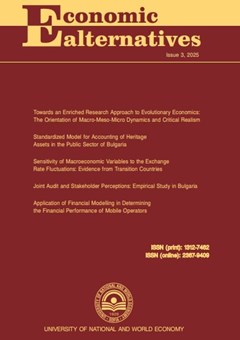Joint Audit and Stakeholder Perceptions: Empirical Study in Bulgaria
Author: Antoaneta Angelova-Stanimirova (First Author and Corresponding Author) 2. Daniela Petrova 3. Snezhana Bacheva 4. Yavor Bachev
Abstract
Companies should concentrate on their chances to improve company operations, increase efficiency, and adjust to changes in order to gain a strategic advantage in the current complex business climate. Understanding how the business runs and how the control process is implemented is essential. The audit and its quality are among the most important matters. The provisions and execution of the joint audit are placed on the agenda following the modifications to the legal frameworks of Europe and Bulgaria. In the specialized literature, it is defined as an audit in which two different auditing firms form a joint opinion on the financial statements and are jointly and severally liable for the issued audit opinion. Through three categories of respondents, the purpose of this article is to empirically examine the perceptions of positive and negative aspects of the implementation of joint audit in Bulgaria. The results of the conducted research conclude a strong correlation between each specific positive aspect of the joint audit, regardless of the respondents’ category – Supervisory institutions, Auditors, and Audited entities. So, the respondents acknowledge the advantages of joint audits and believe that enhancing these positive aspects will inevitably result in a rise in other positive aspects. The main recommendation for future research is to carry out an extensive investigation into the causal connections between the positive and negative individual correlations in a joint audit and cross-national research; analysis and proof are required to understand why joint audits work well in some circumstances while failing miserably in others.

